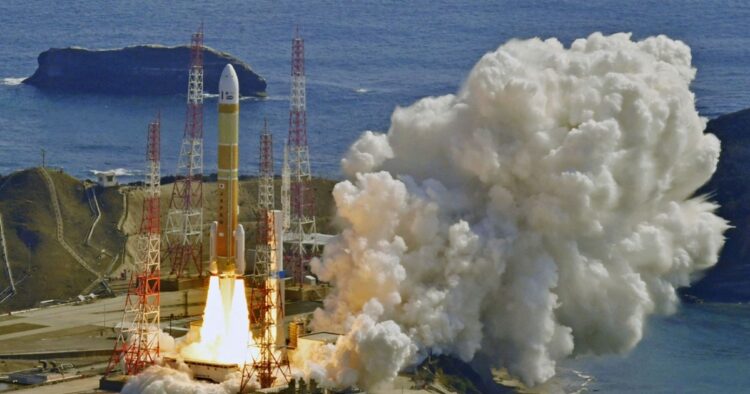In a setback for Japan’s space ambitions, the privately developed rocket ‘Kairos’ exploded shortly after liftoff from a spaceport in western Japan. The incident, which occurred on Wednesday, was captured on live stream video, showing the rocket’s remains falling onto nearby mountainous areas and into the sea. Fragments of the rocket were seen scattered on the ground, with fire hoses deployed to extinguish a large fire caused by the explosion.
The Tokyo-based startup behind the rocket, ‘Space One’, had aimed to become Japan’s first private company to successfully launch a satellite into orbit. However, their 18-meter-long solid-fuel rocket failed to achieve its intended mission, according to The Japan Times. Local firefighters were swiftly dispatched to the scene following the explosion, although there have been no reports of casualties, as confirmed by the police.
Space One stated that “flight termination measures” had been put into effect, suggesting that protocols were in place to mitigate potential risks during the launch. The launch, initially scheduled for Saturday, had been delayed due to the discovery of a ship in a designated safety zone in the ocean.
The satellite onboard the Kairos rocket was intended to perform functions similar to an existing government satellite, particularly in monitoring military facilities in North Korea, as revealed by the Cabinet Satellite Intelligence Center.
Space One, established in 2018, aims to revolutionize space delivery services by reducing costs and increasing the frequency of rocket launches. The startup, backed by Canon Electronics Inc., IHI Aerospace Co., Shimizu Corp., and the Development Bank of Japan, envisions launching 30 rockets annually by the 2030s.
The journey to this launch has been fraught with delays, attributed to challenges such as procuring parts amidst the COVID-19 pandemic and geopolitical tensions like Russia’s invasion of Ukraine. Originally slated for a 2021 launch, the project faced postponements five times before the ill-fated attempt on Wednesday.
While Japan’s private space industry faces setbacks, the nation’s space exploration endeavors received a boost last month with the successful launch of the next-generation H3 rocket by the Japan Aerospace Exploration Agency (JAXA). This success comes after the failure of its first model nearly a year ago, indicating Japan’s commitment to advancing its satellite-launching and space exploration capabilities.
Globally, the demand for satellite launches has surged over the past decade, reaching a record high of 2,368 launches in 2022, according to data from the Cabinet Office. Despite setbacks, Japan remains determined to carve its niche in the competitive space industry landscape.

















Comments